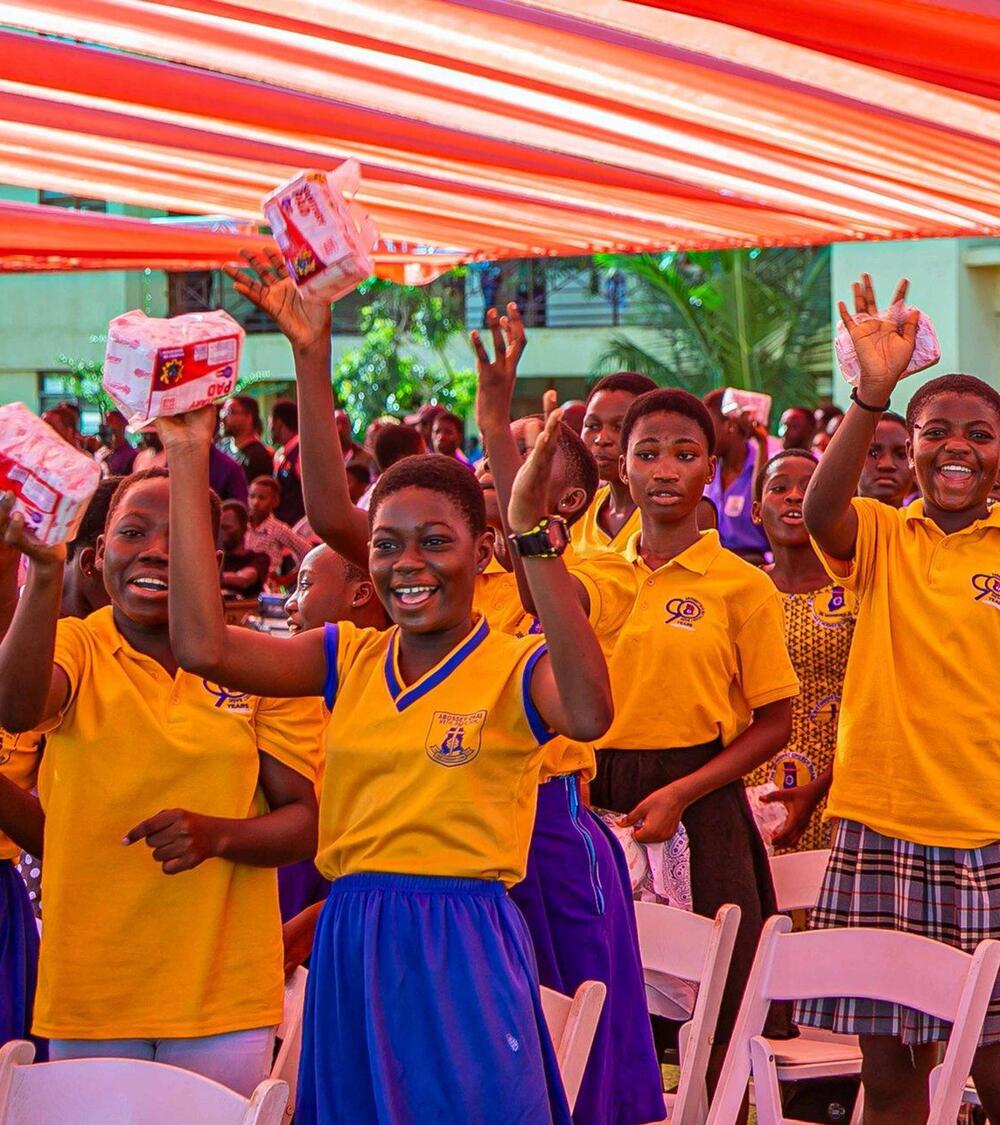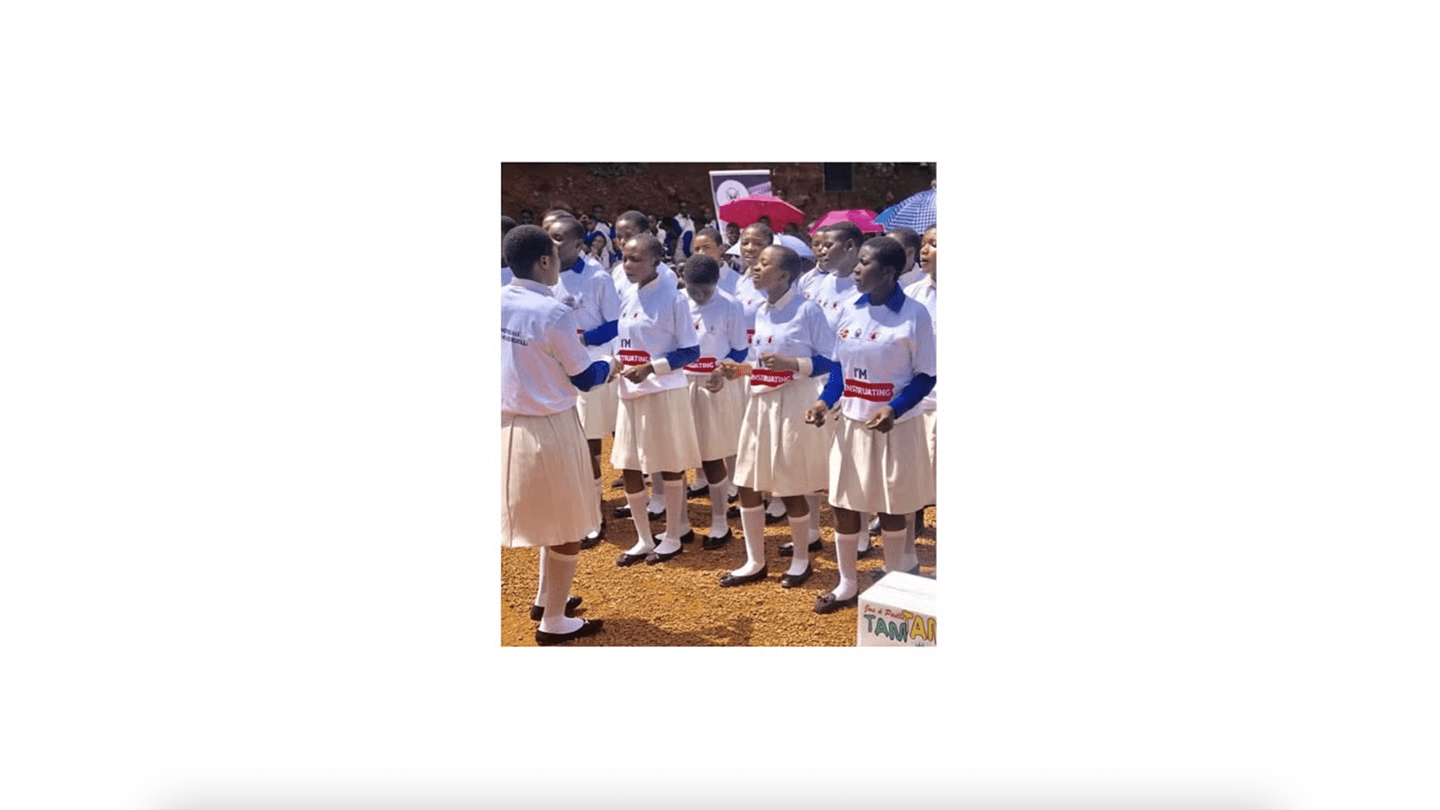Dakar, Senegal – To mark International Menstrual Hygiene Day celebrated annually on May 28th under the global theme Together for a Period-Friendly World, the UNFPA West and Central Africa Regional Office, in partnership with UNESCO, convened a High-Level Multistakeholder Dialogue, promoting a strategic knowledge exchange to advance menstrual equity through collaborative action.
Held virtually and simultaneously in English, French and Portuguese, the webinar brought together government representatives, civil society actors, youth leaders, UN country teams, and development partners from across the region. Over the course of two hours, participants explored practical and scalable models for integrated menstrual health programming—firmly positioning menstruation as a development, rights, and dignity issue.
“Menstrual health is not a luxury or an afterthought. It is a fundamental human right and an essential part of achieving gender equality, health, and education goals,” stated Fabrizia Falcione, UNFPA Deputy Regional Director, in her opening remarks.
Tackling Persistent Gaps through Cross-Sectoral Solutions
Despite growing momentum in West and Central Africa, menstrual health remains hindered by persistent taboos, inadequate infrastructure, lack of education, and limited access to affordable menstrual products—especially for vulnerable groups such as displaced women, girls with disabilities, and survivors of gender-based violence. These challenges are often worsened by siloed approaches, where health, education, WASH, and gender sectors operate in isolation.
Keynote speaker Danielle Engel, Programme Advisor for SRHR at UNFPA HQ, underscored the importance of systemic change:
“Only by integrating menstrual health into broader SRHR, education, and humanitarian strategies can we ensure lasting impact and dignity for all who menstruate.”
Drawing from UNESCO’s global experience in delivering comprehensive sexuality education (CSE), Arushi Singh emphasized the critical role of education in shaping healthier, more equitable futures. “Schools must be safe and supportive spaces where menstruation is understood, respected, and properly managed.”
Period Power: How Young People Are Driving Change with UNFPA

The heart of the event was a showcase of real-world examples from seven countries—Cameroon, Ghana, Liberia, Nigeria, Senegal, Sierra Leone, and Togo—that are taking innovative, community-led, and inclusive approaches to menstrual health:
Senegal – Girls’ Clubs Building a New Deal
In Senegal, Clubs de Jeunes Filles are transforming communities from within. Backed by the Ministry of Youth and UNFPA, these peer groups of vulnerable and out-of-school girls lead awareness campaigns against early marriage and teenage pregnancy. The hallmark of this initiative is the “New Deal”, a pact uniting girls, parents, and community leaders around a shared goal: zero early pregnancy, zero child marriage. Over 12,750 girls in 500+ clubs have already benefited from life skills training, income-generating activities, and menstrual product production such as reusable sanitary pads—all while staying in charge of their own futures.
Togo – From Classrooms to Communities: Youth Take Charge
Togo’s innovative Éducation aux Valeurs et à la Santé Sexuelle (EVSS) program integrates menstrual health education directly into school and out-of-school youth curricula, with strong support from UNFPA. In schools, trained teachers now openly address menstrual hygiene, reducing stigma and improving girls' attendance. Beyond classrooms, youth committees formed from trained adolescents now produce reusable menstrual pads, spreading awareness and distributing products across rural communities. The youth are not just beneficiaries—they are becoming producers, educators, and changemakers.
Sierra Leone – Girls Leading Through Technology and Dialogue
In Sierra Leone, the Teens Hub Initiative, supported by UNFPA and the Ministry of Youth Affairs, is revolutionizing menstrual health education. With the development of a menstrual cycle tracking app and storytelling-based workshops, girls gain confidence to manage their periods and advocate for better care. In just one year, over 1,000 girls and 500 boys have been trained, and parents are now engaged in positive menstrual health dialogue. Boys are allies, schools are partners, and technology is the bridge to period dignity.
Sierra Leone (Kawula Village) – Traditional Leadership Redefines Norms
In rural Sierra Leone, Mammy Queen N’mah Turay is shifting deeply rooted beliefs around menstruation. With support from UNFPA and FINE, she founded Mother-to-Mother Support Groups and works with boys, teachers, and elders to promote respect and open dialogue. Her leadership has led to a notable reduction in early pregnancies and child marriage, proving that when community matriarchs lead, the entire village follows.
Liberia – Girls at the Center of Change
UNFPA Liberia is empowering girls as leaders of change through school and community campaigns. In 2024 alone, over 850 adolescent girls across 10 rural communities received menstrual education and hygiene kits. Boys joined the conversation through peer learning, and radio outreach reached over 25,000 listeners. In 2025, UNFPA is scaling this work with pad banks in schools, mobile outreach, and collaboration with three ministries, ensuring every girl has safe, informed, and supported menstrual experiences.
Ghana – No Girl Left Behind: Free Sanitary Pad Initiative
Ghana’s national Free Sanitary Pad Initiative, launched under presidential leadership, ensures no girl misses school because of her period. With monthly pad distribution integrated into school health programs, the initiative tackles period poverty head-on. Backed by multiple ministries and CSOs, it highlights that when policy meets grassroots need, attendance rises, confidence grows, and education continues uninterrupted.
Cameroon – Innovation, Inclusion, and Eco-Friendly Solutions
In Cameroon, youth-led social entrepreneurship is at the heart of menstrual health innovation. With UNFPA’s support, the organization Vessels for Development distributes biodegradable pads, menstrual tracking bracelets, and trains youth to lead inclusive menstrual education in schools, refugee camps, and prisons. Over 500 rural girls are already tracking their cycles more accurately, and girls with disabilities are finally included through Braille-friendly materials and low-cost, locally made distribution machines.
Interactive Learning and Commitments to Action
Participants engaged in a dynamic Q&A and concluded with a “Connection Sprint,” during which each attendee identified one concrete opportunity to advance integrated menstrual health action within their own context—be it through partnerships, programming, or advocacy.
In closing, Bernadette Ssebadduka, Regional Gender and Human Rights Advisor at UNFPA, called on all partners to maintain the momentum:
“Let’s turn the insights and innovations shared today into action—so that no girl misses school, no woman is sidelined at work, and no person is left behind because of menstruation.”
On this Menstrual Hygiene Day 2025, UNFPA joins the global call for a world where menstruation is no longer a barrier to education, health, or opportunity. We invite all stakeholders—governments, communities, civil society, and private sector actors—to come together for a #PeriodFriendlyWorld.
📢 Take action today! Learn more, share the message, and support menstrual health initiatives in your country.


